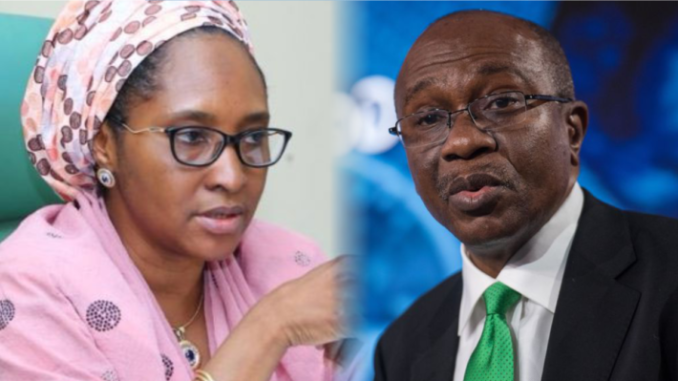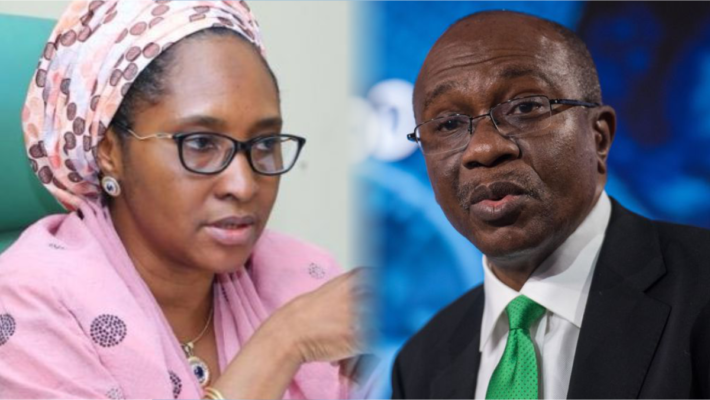
The federal government has spent at least N6.16 trillion on debt servicing in the last 16 months, with domestic debt getting a huge chunk of the amount.
This is contained in the 2023-2025 Medium Term Expenditure Framework & Fiscal Strategy Paper.
In 2021, the federal government spent N4.22 trillion on debt service, while the balance of N1.94 trillion was paid between January and April 2022.
A breakdown shows that domestic debt service cost N2.05 trillion, while foreign debt service gulped N946.29 billion in 2021. There was also N600 million sinking fund and N1.22 trillion interest on ways and means, which is defined as the government borrowing from the Central Bank of Nigeria (CBN).
In the first four months of 2022, domestic debt servicing cost was N1.2 trillion, whereas foreign debt service expenditure amounted to N334.24 billion. There was also N405.93 billion interest on ways and means.
The government, according to the 2023-2025 MTEF/FSP document, further projected debt servicing to cost N10.43 trillion by 2025, even as there is a 182.66 per cent increase from the N3.69 trillion budgeted for debt service in 2022.
Multilateral agencies and economists have constantly warned the federal government about the rising cost of debt servicing, which could trigger a crisis for the country.
However, Minister of Finance, Budget and National Planning Zainab Ahmed, and Director General Debt Management Office (DMO) Patience Oniha have insisted that the country does not have a debt problem but a revenue challenge.
In a document by the DMO DG recently obtained by our correspondent, the DMO stated that high debt levels would often lead to high debt services and affect investments in infrastructure.
“High debt levels lead to heavy debt service which reduces resources available for investment in infrastructure and key sectors of the economy,” the DMO boss said.
In the document, she stressed the need for debt sustainability, which she defined as the ability to service all current and future obligations, while maintaining the capacity to finance policy objectives without resort to unduly large adjustments or exceptional financing such as arrears accumulation and debt restructuring, which could otherwise compromise the economy’s stability.
Speaking at the launch of the World Bank’s Nigeria Development Update titled, ‘The urgency for business unusual,’ held recently in Abuja, the finance minister had admitted that Nigeria was struggling to service its debt.
She said: “Already, we are struggling with being able to service debt because even though revenue is increasing, the expenditure has been increasing at a much higher rate, so it is a very difficult situation.”
The International Monetary Fund had earlier warned that debt servicing might gulp 100 per cent of the federal government’s revenue by 2026 if the government failed to implement adequate measures to improve revenue generation.
According to the IMF’s Resident Representative for Nigeria, Ari Aisen, based on a macro-fiscal stress test that was conducted on Nigeria, interest payments on debts might wipe up the country’s entire earnings in the next four years.
Aisen said: “The biggest critical aspect for Nigeria is that we have done a macro-fiscal stress test, and what you observe is the interest payments as a share of revenue. As you see us in terms of the baseline from the Federal Government of Nigeria, the revenue of almost 100 per cent is projected by 2026 to be taken by debt service.
“So, the fiscal space or the amount of revenues that will be needed and this, without considering any shock, is that most of the revenues of the Federal Government are now, in fact, 89 per cent and it will continue if nothing is done to be taken by debt service.”
NEITI on $6.8bn debt
Meanwhile, the Nigerian Extractive Industries Transparency Initiative (NEITI) has said the sector is owing the federal government about $6.8 billion.
NEITI Executive Secretary Dr Ogbonnaya Orji said this in an interview with newsmen in Abuja.
He said: “NEITI does not collect or keep any money and we do not release money or generate revenue but our report can incentivise revenue generation.”
“I knew that information and data can be translated into revenue generation, so the first thing we did was to look at government agencies and companies that owed government and nobody was talking about that.
“About 77 of these companies were rejecting NEITI’s report and people in the past had no courage to release their names to the public. I released their names and I published them because the amount they owed us was up to the excess of $6.8 billion and here Nigeria is borrowing money to fund the budget. I said this cannot continue and by the time we released that report and threatened to name the companies, they know the implications to their reputation in international oil market so many of them rushed to pay,’’ Orji said.
The NEITI boss also said all the taxes have to go to the Federal Inland Revenue Service and all the royalties concessions have to go to the Nigeria Upstream Petroleum Commission.
On the defaulting companies, he said: “The number of companies owing reduced from 77 in 2019 to 51 in 2022. This means they have been paying and we are using the opportunity we have to warn that 2021 reports will be released by December. Any company that has not paid we will drag them to the Economic and Financial Crimes Commission (EFCC).
“We do not want to get to that level because we need the companies to do business in Nigeria. The companies are very critical in our sector and without the companies that do business in oil and gas, taxes will not be paid and revenue will not be generated. But we are saying that the countries where most of the companies come from they don’t owe taxes, they don’t owe royalties. In future, I will be thinking of calculating the interest that is to the extent that NEITI report has continued to help generate revenue.”
